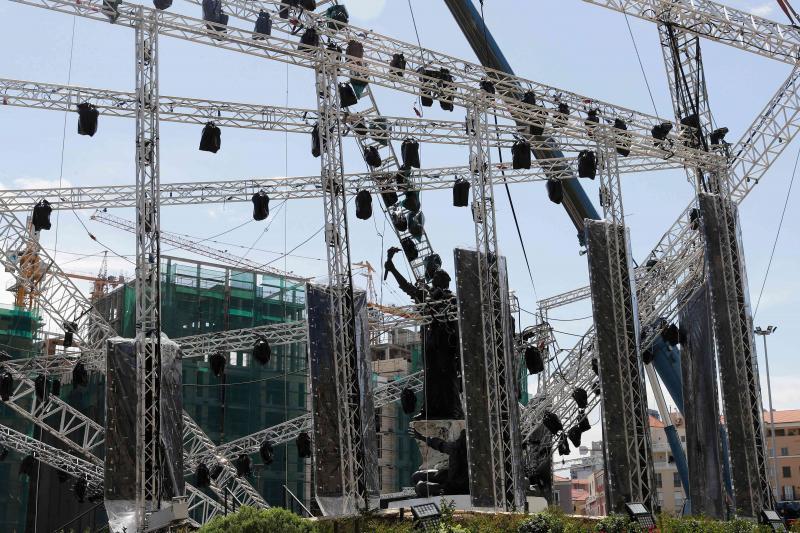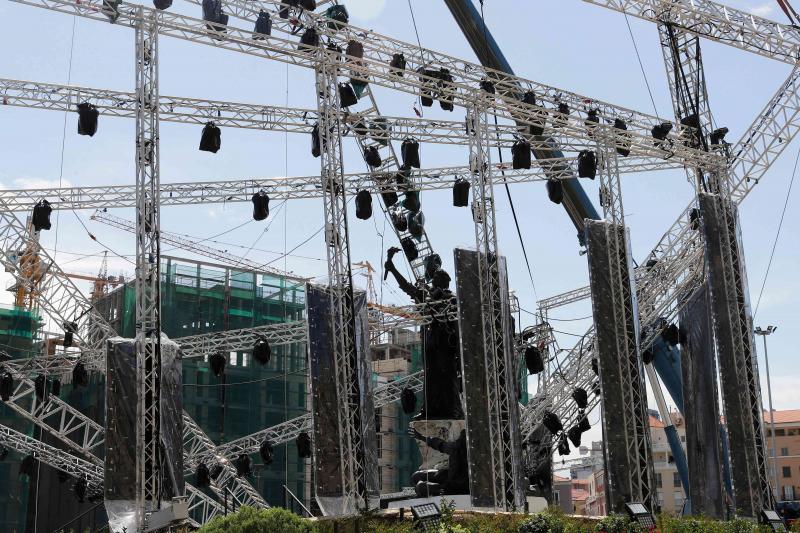Shattering the myths of Lebanese elections
Following a 9-year electoral hiatus, many Lebanese were extremely keen to cast votes in the May 6 parliamentary elections — at least it seemed so.
Much of the fuss over this supposedly routine activity was because of a new proportional election law, which, theoretically, offered voters a chance to either dislodge Lebanon’s political elite or challenge their hegemony.
However, the anticipated excitement never made it as far as Election Day. Voter turnout was about 49% nationwide, including a measly 34% in Beirut. The results, given revisions to the law and the gerrymandering that went into it, were hardly unexpected. Most of the traditional political parties retained their share of seats, although some factions gained seats in districts the previous majoritarian electoral law had barred them from representing.
The main casualty of the election was Lebanese Prime Minister Saad Hariri, who saw his Future Movement bloc reduced from 33 to 21 seats, as the distinctly underwhelming Sunni turnout allowed Hezbollah and its pro-Syrian Sunni allies to win five seats in Beirut, a traditional Hariri stronghold.
More important, Hezbollah, with its Shia ally the Amal Movement, secured most of the Shia seats in parliament and helped its allies challenge the hegemony of the Future Movement in the Sunni community.
Hariri’s electoral debacle served as a painful reminder of the bargain he struck with Lebanese President Michel Aoun and the consequent abandonment of his father’s legacy he demonstrated by turning his back on traditional allies Samir Geagea and Walid Jumblatt.
Above all, Hariri and his Future Movement failed to address key grievances of their constituency, which had sent alarming messages in the latest municipal elections by essentially boycotting the vote.
In addition to Hezbollah, the other two victorious parties were the Free Patriotic Movement led by Aoun’s son-in-law and Lebanese Foreign Minister Gebran Bassil and the Lebanese Forces. Bassil conjured up and gerrymandered districts to secure his win. The Lebanese Forces surpassed expectations with 15 seats, one of which is deep in the heart of Hezbollah-controlled area in eastern Lebanon.
Yet the results of this supposed democratic election go beyond confirming Hezbollah’s hegemony over the Lebanese state. They lay to rest some myths and misconceptions about reforming the archaic Lebanese political system.
Contrary to the expectations of the political factions, which approved this diabolical electoral law, the proportional electoral system was not well received by most of the Lebanese. For evidence, there is the appalling turnout. Realistically, Lebanese feel uneasy voting for a locked list with one preferential voting option, something that would entail them publicly endorsing one faction over the other.
Interestingly, there is something very non-Lebanese about Bassil’s law, at least from the perspective of the voters. Most Lebanese who are not affiliated to political factions, either by choice or by tradition, prefer to divide their votes between opposing candidates, allowing them to petition either side for favours as circumstances dictate. Such locked lists require that the parties running present a clear and realistic political and economic platform, something that none of those running May 6 managed to do.
Funnily enough, even if such a political programme existed, it is highly unlikely the Lebanese would even consider it, as they would rather continue voting for their traditional sectarian and tribal leadership, something that the election results confirmed. Despite the government’s campaign instructing voters how the system worked, 38,909 void ballots — a large number for an election in Lebanon — were cast, suggesting the system was too complex for ordinary electors.
Perhaps one of the most important myths that the election shattered was one campaigned on by many independent political activists: that electoral reform was key for political reform. In reality, the Lebanese electorate chose not to endorse the so-called civil society candidates, who assumed that their active social media profiles were sufficient to get them to parliament, and voted for the status quo instead.
Perhaps it is permissible to spend hours analysing and looking for reasons to justify the election results. However, what cannot be disputed is that, while they are entitled to celebrate their democratic achievement, the Lebanese have a long way to go before they can call themselves a democracy.
This article was originally published in The Arab Weekly.







